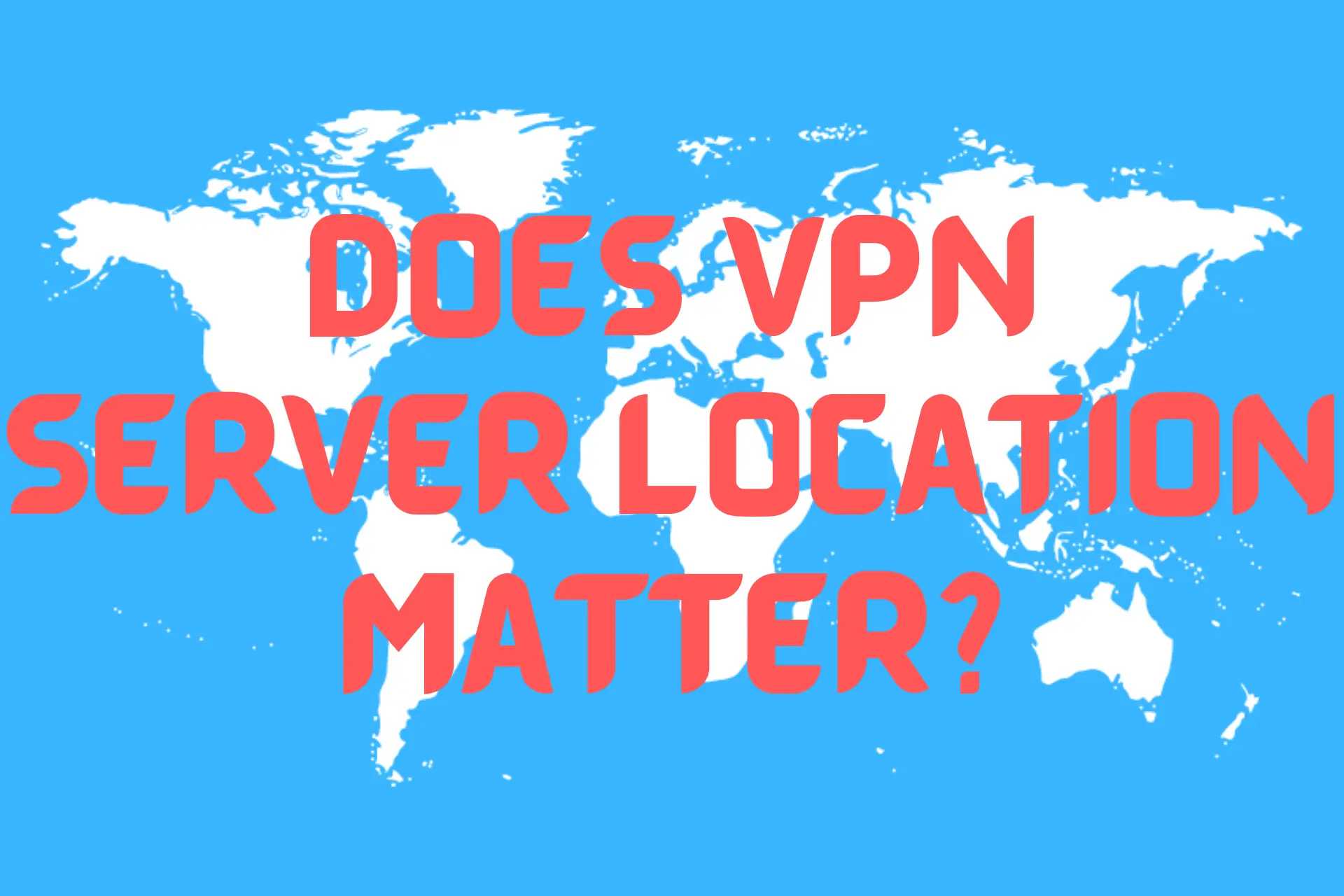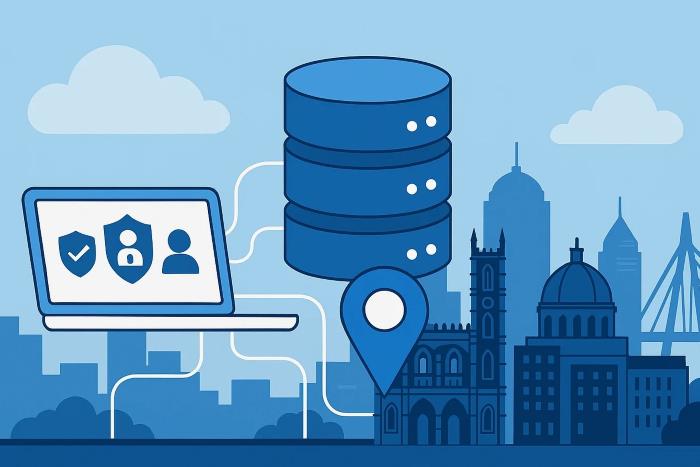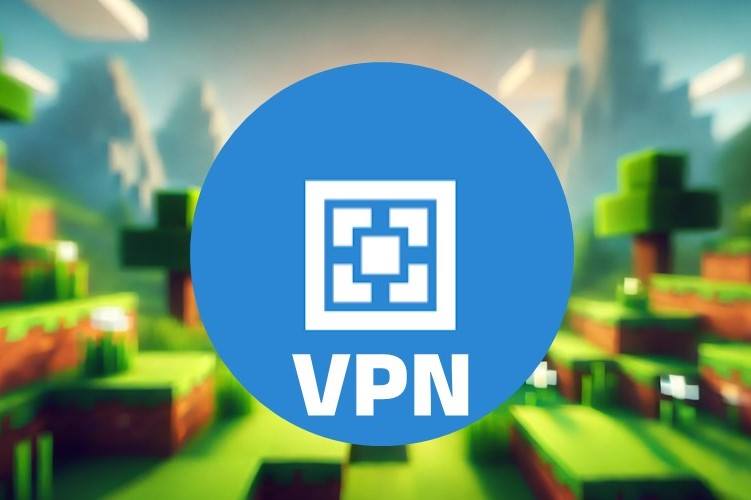Does VPN Server Location Matter? [All You Need to Know]
7 min. read
Updated on
Read our disclosure page to find out how can you help VPNCentral sustain the editorial team Read more

VPNs categorize servers by location for a reason.
Apart from bragging about server count, service providers love advertising how big their network size is.
So when their fleet doesn’t cover too many cities, countries, territories, and regions, they may play it down to avoid turning potential subscribers off.
But why is that?
Are VPNs like real estate where it’s all about location?
The answer is more interesting than you think.
Is VPN server location important?
The short answer is yes: VPN server location is important.
Make no mistake about it, any random VPN hardware that doesn’t leak your traffic can boost your internet privacy and security regardless of the address of the data center that houses it.
As long as it uses a reliable tunneling protocol, it will mask your real IP, hide your DNS queries from your ISP, and encrypt your data properly.
But in many cases, choosing a VPN server from a specific city, country, territory, or region is highly beneficial.
Why does VPN server location matter?
VPN server location matters because it can determine whether you’ll achieve your objective of obscuring your online presence.
Every VPN user has a unique motivation; usually, arbitrary selection of server location won’t help you accomplish what you intend to do.
As follows are the main factors why it’s better to connect to a specific VPN server intentionally rather than randomly:
Latency
Generally, using a VPN causes lag. That’s because encrypted traffic moves slower than plain text. The farther your chosen VPN hardware from your physical location, the longer it takes for your data to reach its ultimate destination.
So, you should think about proximity to reduce potential internet connection speed loss.
On the upside, VPN use can drive down your ping by routing your data more efficiently to the target server.
Geo-blocking
If you want to get around region locks and blackouts, you’ll need to send your traffic to a VPN server in a place where the geo-restricted content is available.
Since the key to unlocking censored media is an IP address registered in the permitted area, you have to obtain one from a specific location.
Server concentration
Every server location represents a cluster of hardware. The clusters in large VPN markets such as the US and the UK significantly outsize those in smaller ones.
In other words, deciding to connect to a server in an underserved country or territory means you have to compete with other VPN users for resources. It can result in performance issues, increasing the chances of connection errors.
Moreover, selecting a location with a low concentration of VPN servers limits the number of IPs you can use to cloak your online activity. Scarce IP options heighten your risk of getting banned by a service that implements geo-blocking.
Hardware speed
When upgrading from 1Gbps to 10Gbps VPN hardware, vendors often prioritize popular locations to delight the majority of their subscribers.
So if you choose a place that’s low on your provider’s agenda, you won’t enjoy faster connection speeds.
Data retention laws
Not all jurisdictions have VPN-friendly legislation. Some states may force VPN companies to log certain information about users and their internet activity, which may negatively impact your online anonymity.
Government surveillance
Both authoritarian regimes and democracies are guilty of mass surveillance. The former may ask VPN vendors for a backdoor to their traffic while the latter may subpoena their assets for inspection.
Reputable VPN service providers have no choice but to play ball with government snoopers to stay in business. But they also know that it’s unethical to put the privacy of their users in jeopardy when dealing with intelligence agencies.
That’s why pragmatic VPN companies use tried-and-true workarounds like RAM-only hardware or virtual server locations to comply with the authorities without compromising their principles.
But as a user, you should still be mindful of where to send your traffic to avoid nosy governments as much as possible.
Specific traffic optimization
Many regular VPN servers are not set up to handle some types of internet traffic, particularly peer-to-peer (P2P) networking.
To accommodate the high-bandwidth needs of users, some vendors offer pieces of specialized hardware for specific uses such as streaming, gaming, and torrenting.
Problem is, they’re not available universally. So, you have to pay attention to the geography of these specialty VPN servers to tap them.
Advanced server features
Not every vendor that extends double VPN, obfuscation, and Onion over VPN capabilities makes them accessible network-wide.
So if you need to take your privacy and cyber security to the next level, you’ll have to select your server locations wisely.
Dedicated IPs
Purchasing a dedicated IP has many merits. But one big downside is you’ll be tied to a single country or territory.
Therefore, you lose the advantages a dedicated IP brings when you roll the dice to establish a VPN connection.
How to choose the best VPN server location
You need common sense to choose the best VPN server location. Here’s our advice for every use case:
Online activity cloaking
If you don’t really care where your masked IP comes from, go with any VPN server location. This is good practice when connecting to an unsafe WiFi network.
However, to avoid unnecessarily driving up latency, choose the fastest hardware at the time of your connection. Many VPNs offer a one-click solution to eliminate guesswork.
Better yet, if possible, pick a server in your own city or country, provided that it’s in the same time zone.
For extra privacy and security, choose between servers optimized for double VPN and Onion over VPN. You may have limited location options with them, so cut the distance as much as possible to keep your connection speed workable.
Streaming
If you want to unblock geo-restricted media, you’ll have to replace your IP with one coming from a region where the content is legally available.
Streaming platforms are notorious for blacklisting VPN IPs. So, take advantage of a server optimized for the service you want to access to make your life easier.
When dealing with blackouts in the US, use an IP from a state where the sporting event is available for broadcast.
But if you just want to avoid bandwidth throttling and don’t need to circumvent geo-blocking, connecting a local VPN server will make more sense.
Gaming
As a rule of thumb, you should select the closest VPN hardware to your target game server to minimize ping and dodge region locks.
But if DDoS attacks are a concern and geo-restrictions aren’t, choose a server location in your own country.
P2P networking
To compare server locations, find out whether your particular P2P activity is legal in the country. For instance, downloading copyrighted material is a crime in the States.
Once you’re sure that you won’t be breaking the law, send your data to the one in closest proximity to you. Regular hardware doesn’t guarantee a successful connection. So, always pick a P2P-friendly option when given the chance.
Censorship avoidance
If you need to masquerade your VPN traffic in order to go unnoticed by government censors, choose the closest server that supports obfuscation.
Location only matters when you want to enjoy stealth and unblock geo-restricted content at the same time.
Summary
Does VPN server location matter? Absolutely, it does, even though the IP’s origin is sometimes irrelevant.
It’s important for minimizing latency, unblocking geo-restricted content, gaining access to faster hardware, and more.
So whatever you want to accomplish through a VPN, it typically pays to be attentive to where you send your traffic to get the desired results.









User forum
0 messages